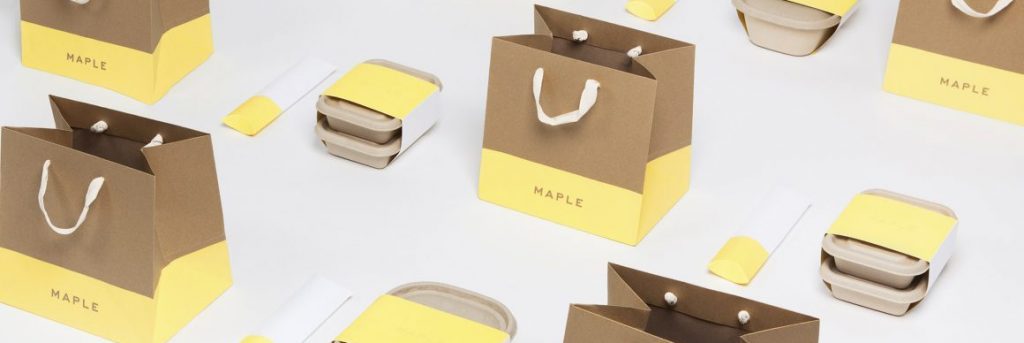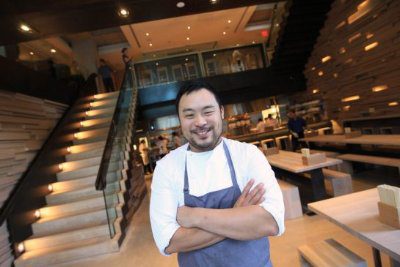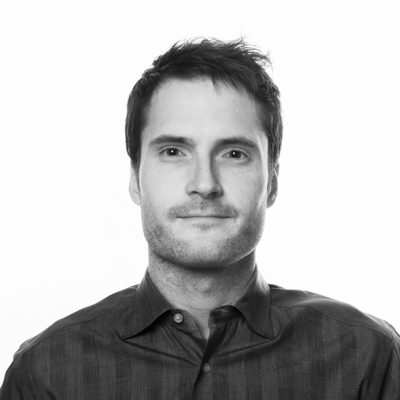MBA Startup: Maple Food Delivery Service

Food and start-ups go together like pizza and pepperoni, peanut butter and jelly, General Tso’s and white rice — new businesses and new ways for consumers to fill their stomachs go hand in hand. In today’s connected, digital, and fast-paced world, start-ups have found new ways to bring food directly to consumers in quick, efficient and affordable ways. Some of the most successful food delivery companies, such as GrubHub, started as small-time apps before becoming synonymous with 2AM pizza and desperate dumpling orders.
Food Delivery Startups
Founded in 2004 by Matt Maloney, MBA’10, and Mike Evans, GrubHub was a star in the start-up world, winning the 2006 Edward L. Kaplan ’71 New Venture Challenge at the University of Chicago Booth School of Business’ Polsky Center for Entrepreneurship and Innovation. The app works with approximately 28,800 takeout restaurants in more than 600 cities in the United States and London. GrubHub estimates that 3.4 million users place about 135,000 daily orders on the platform.
In 2014, the company announced it had completed its public offering, and its common stock was listed April 4 on the New York Stock Exchange under the symbol GRUB. While Grubhub is arguably king of the food delivery start-up world, there are others trying to break into the food delivery industry. One of these newcomers is Maple.
MBA Startup: Maple
According to its website, Maple is a new food concept that combines New York’s best chefs with high-quality ingredients and rotating daily menus, all delivered to your door with the tap of a button. Headquartered in Manhattan, Maple was founded by Akshay Navle and Harvard Business School alum Caleb Merkl and is backed by celebrity chef David Chang.
“In general delivery food is not that great,” Merkl told Forbes. “The actual experience around reliability is pretty low with a lot of choices, and a bloated price point.” We want to make delivery food exceptional at every touch point, and to do that we have to own the entire process. From sourcing ingredients to developing our own menus, building a back-end to get the food there.”
How Does Maple Set Itself Apart from other Food Delivery Services?
First off, the menus aren’t sourced from restaurants — instead they are created by various celebrity chefs such as Momofuku’s David Chang and Le Bernardin’s Soa Davies. These chefs will cook your meals from central kitchens in New York City and delivers the meals within five-minute bike rides of each kitchen, which according to the New York Post is roughly everywhere below 14th Street, and up to 42nd Street between Eighth Avenue and Park Avenue.
And while the people preparing the food are a big deal, the company is counting on its carefully sourced food to make the biggest impact. For example, Maple uses antibiotic-free and free-range chicken and veggies from local farms like Gotham Greens in Brooklyn. Menus change regularly and offer three options for lunch ($12) and dinner ($15). According to Navle, folks using Maple will receive a hot meal at their door in less than 30 minutes from when an order is placed.
 In an interview with Forbes, Merkl was asked about his time as an entrepreneur-in-residence at High Peaks Venture Partners, which has since been renamed Primary Venture Partners, and how that experience led to the genesis of Maple.
In an interview with Forbes, Merkl was asked about his time as an entrepreneur-in-residence at High Peaks Venture Partners, which has since been renamed Primary Venture Partners, and how that experience led to the genesis of Maple.
“What I didn’t expect, but what had profound impact on my path to Maple, was just sitting and listening to other entrepreneurs pitch their businesses to Primary,” he said. “Almost every single group that came in to talk with us had a solidified vision of their business and as a result, an immense passion for it. Sitting in on these pitches underscored how important it was for me to take my time in landing on something that I had incredibly high conviction about – there is no turning back once you press go.”
The Growth of Maple
According to Business Insider, investors seem to have been eager to buy into the company; the startup raised $22 million in its Series A round in March of 2015, following a $4 million seed round in 2014. The Series A was led by Greenoak Capital, with other backers including Thrive Capital, Primary Ventures, Bonobos CEO Andy Dunn, and others. According to GrubStreet, Maple currently has 40 employees and most of the company’s growth is coming from the culinary and delivery sides. As it stands today, Maple only serves a very limited number of neighborhoods — something the company has drawn criticism for.
“When we first launched, we had people driving to the Financial District and ordering it in their cars,” Merkl told the New York Post. “We’ve had people using Postmates [a third-party delivery service] to get the food brought up [to addresses out of the zone].”
According to GrubStreet, Merkl envisions Maple as a service that could work in “pretty much every city”, but for now the company is looking to slowly expands its delivery areas to serve all of Manhattan.

